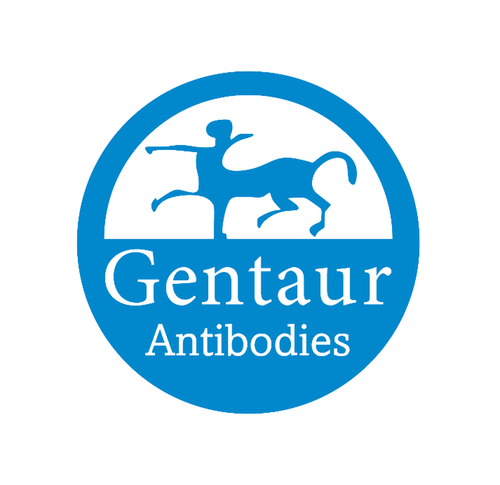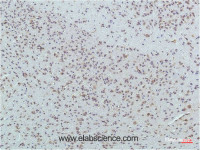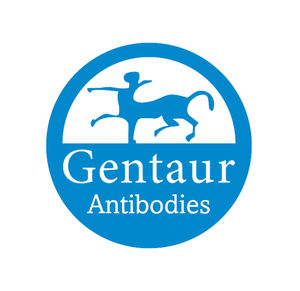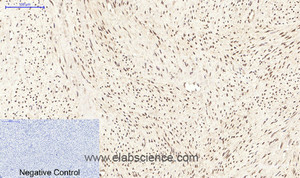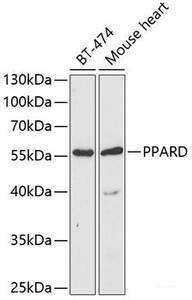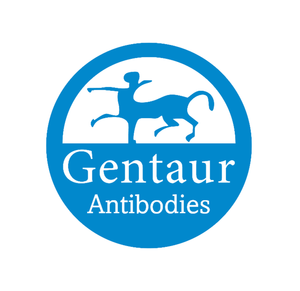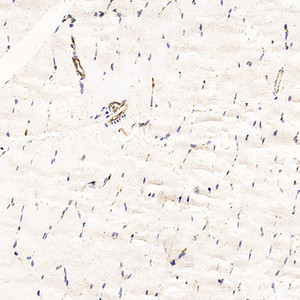PPARD Monoclonal Antibody | G-AB-05673
Gentaur Antibodies
- SKU:
- G-AB-05673
- Availability:
- 3 to 5 Working Days
- Host:
- Mouse
- Reactivity:
- Human, Mouse, Rat
PPARD Monoclonal Antibody | G-AB-05673 | Gentaur Antibodies
Overview: This gene encodes a member of the peroxisome proliferator-activated receptor (PPAR) family. PPARs are nuclear hormone receptors that bind peroxisome proliferators and control the size and number of peroxisomes produced by cells. PPARs mediate a variety of biological processes, and may be involved in the development of several chronic diseases, including diabetes, obesity, atherosclerosis, and cancer. This protein is a potent inhibitor of ligand-induced transcription activity of PPAR alpha and PPAR gamma. It may function as an integrator of transcription repression and nuclear receptor signaling. The expression of this gene is found to be elevated in colorectal cancer cells. The elevated expression can be repressed by adenomatosis polyposis coli (APC) , a tumor suppressor protein related to APC/beta-catenin signaling pathway.
Category Type: Monoclonal Antibody
Research Areas: Cancer, Cardiovascular, Epigenetics and Nuclear Signaling, Metabolism
Synonyms: FAAR, MGC3931, NR1C2, NUC1, NUCI, NUCII, Nuclear hormone receptor 1, Nuclear receptor subfamily 1 group C member 2, Peroxisome proliferative activated receptor delta, Peroxisome proliferator-activated receptor beta (PPAR-beta) , Peroxisome proliferator-activated receptor beta, Peroxisome proliferator-activated receptor delta, PPAR beta, PPAR-beta, PPAR-delta, PPAR-, PPARB, ppard, PPARD
Reactivity: Human, Mouse, Rat
Host: Mouse
Isotype: IgG
Gene ID:
Accession #:
Clonality: Monoclonal
Immunogen: Recombinant Protein of PPAR Delta of PPAR Delta
Clone #: Clone:1D7
Conjugation: Unconjugated
Swissprot: Q03181
Santa Cruz:
Calculated MW:
Observed MW:
Concentration: 1 mg/mL
Buffer: PBS with 0.02% sodium azide, 0.5% BSA and 50% glycerol, pH7.4
Purification method: Protein A purification
Application: IHC-p
Dilution: IHC 1:100-200
Storage: Store at -20°C. Avoid freeze / thaw cycles.
